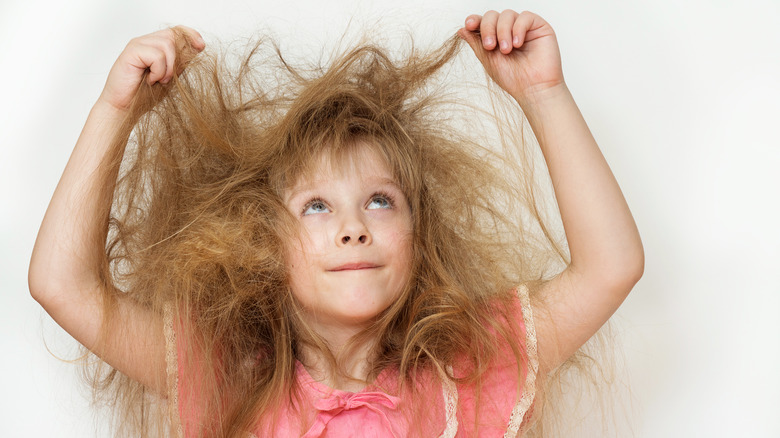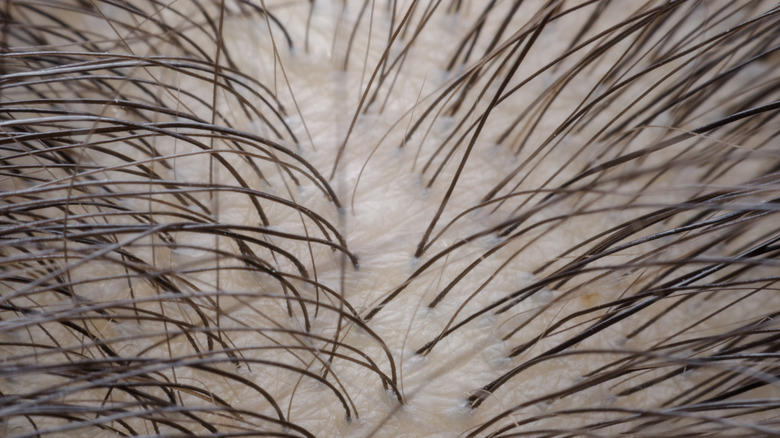What Is Uncombable Hair Syndrome?
Have you ever wondered what it would be like if your hair didn't brush flat? That's the reality for many people worldwide who have uncombable hair syndrome. The disorder affects the hair shaft, or the hair above your scalp, by making it dry, frizzy, and "uncombable." According to Medline Plus, the rare condition appears between infancy and age 3 but can happen as late as age 12. Children with the condition often have blonde or near-silver hair color.
If you take a look at your own scalp, you'll likely notice your hair follicles growing downward or in the same direction. With uncombable hair syndrome, hair grows in different directions, making it virtually untamable. While the quantity of hair isn't affected, it can cause hair to grow more slowly, per WebMD.
According to WebMD, there are approximately 100 scientific cases of uncombable hair syndrome on record. It's possible there may be more cases due to the disorder disappearing later in childhood. Uncombable hair syndrome is also called "spun glass hair," "cheveux incoiffables," and "pili trianguli et canaliculi." Only hair at the scalp is affected, so you shouldn't see a difference in hair on other parts of the body.
Causes of uncombable hair syndrome
It's believed gene mutations are to blame for uncombable hair syndrome. According to the Genetic and Rare Diseases Information Center, three genes have been linked to the disorder: PADI3, TGM3, and TCHH. These gene codes play a role in making keratin, or protein, for hair, but when they mutate, little to no protein is made. When this happens, the hair shaft's shape changes. The usual rounded, cross section of the hair shaft turns into a flat, cross section that cannot be brushed or combed down.
You're more likely to inherit this condition if your parents had the specific gene mutations, but that doesn't mean they had the disorder. Scientists think only one parent with the gene mutation is needed in order for it to pass to you (via WebMD). Despite gene mutations being a common cause of uncombable hair syndrome, not all cases of the disorder are due to genetic mutations, and other causes are still unknown.
There's no treatment for uncombable hair syndrome, as the condition goes away on its own over time and usually when puberty starts, per WebMD. Those with uncombable hair syndrome should use a soft brush for any tangles and avoid over brushing as that may lead to hair damage.


